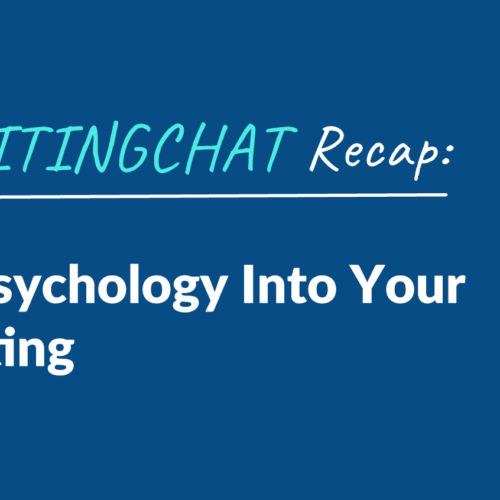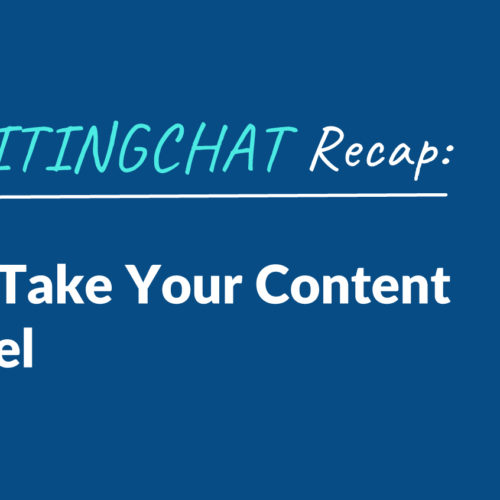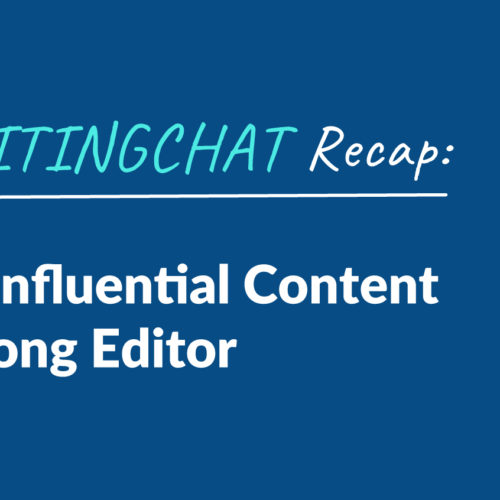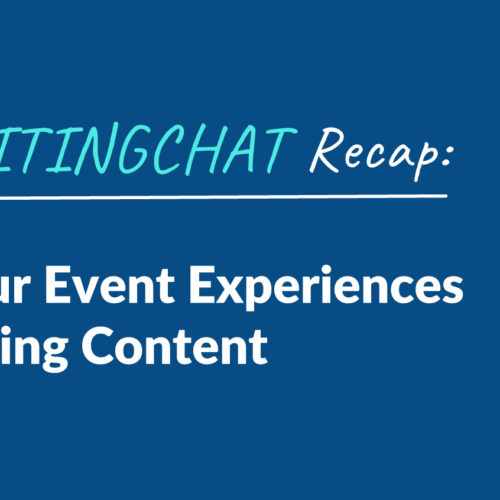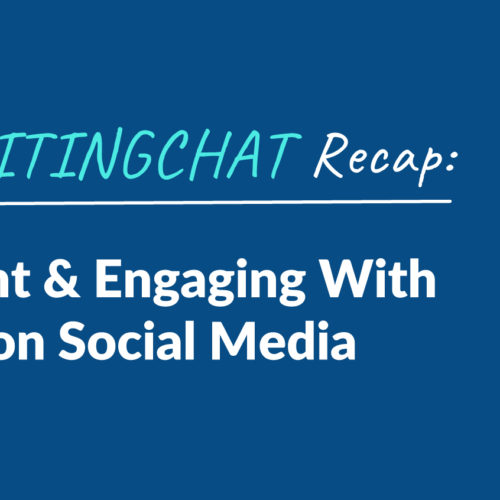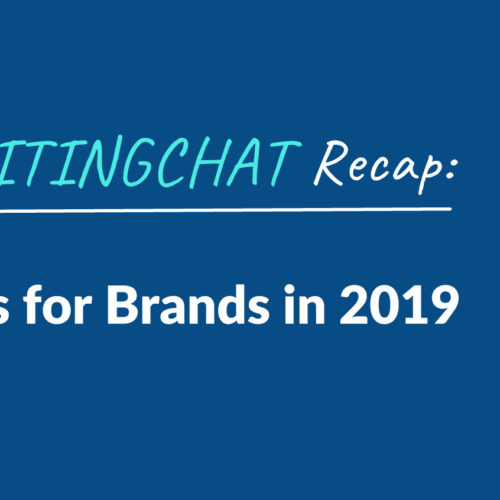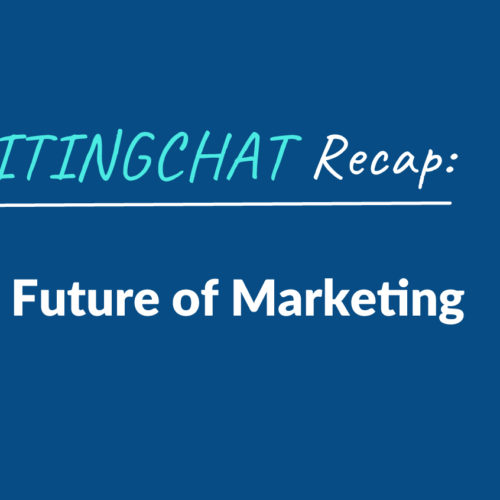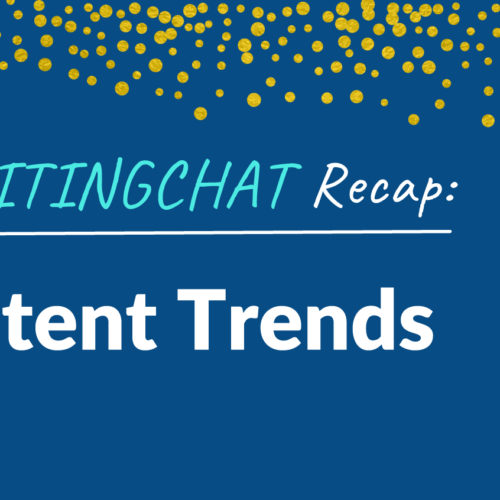#ContentWritingChat Recap: Incorporating Psychology Into Your Content Marketing with Elise Dopson
When you’re crafting your content marketing strategy, does psychology ever come into play? If not, it really should! In this #ContentWritingChat, we discussed why emotion should be incorporated into your content, which emotions make people buy a product or service, and how you can successfully target emotions in the content you create. Want to learn more? Let’s dive into the recap! #ContentWritingChat Recap: Incorporating Psychology Into Your Content Marketing with Elise Dopson Welcome to #ContentWritingChat! Our guest host today is @elisedopson. She’s a B2B content marketing expert. And she’s here to share her tips on incorporating psychology into your content. It’s going to be an amazing chat! pic.twitter.com/RezZSipLOD — Express Writers | Your Content Writing Team (@ExpWriters) September 3, 2019 Our guest host for this month’s chat was Elise Dopson. She’s a B2B content marketing expert. And you can usually find her crafting blog posts on sales and marketing for various B2B SaaS companies around the globe. Elise shared some incredible tips, so let’s get to the questions! Q1: Do you think about psychology when planning your content? Why or why not? To kick things off, it only made sense to gauge where our community was at when it comes to incorporating psychology into your content marketing efforts. The answers were all across the board, so here’s what a few people had to say: A1: Absolutely. People come with biases, logical fallacies and emotion when making decisions. It’s important to know the state of mind of your audience when planning/producing content. #ContentWritingChat https://t.co/IcV7sgTkCQ — Ray Sidney-Smith (@w3consulting) September 3, 2019 Ray says this is something he absolutely does. He feels it’s important to always know the state of mind your audience is in when you’re planning and creating the content they’ll consume. A1: Always! Psychology can help you better understand the thought process of individuals and how they react to certain things. I always like to consider that when it comes to content in order to ensure I am delivering what my audience wants! #ContentWritingChat — Tamara (@itstamaragt) September 3, 2019 Tamara agrees. She thinks psychology can help you better understand the thought processes of your target audience, plus how they might react to certain things. A1. I think psychology is always somewhere in the back of my mind. It connects so deeply to what I do on a leadership and marketing level. I think of it this way: how can I use this field to help and serve others. #ContentWritingChat — Gene Petrov – Leadership Based Marketing (@GenePetrovLMC) September 3, 2019 For Gene, it’s something that’s always in the back of his mind because it plays such a big role in leadership, as well as marketing. A1. No. I actually think more about sociology, trends and look at the keywords that my network engages with the most. But, maybe I should include this… #contentwritingchat — SL Thomas (@iamslthomas) September 3, 2019 Not everyone in the chat had jumped on board with this idea just yet. But that’s totally okay! Doing these chats is a great way to teach people new techniques that they might want to incorporate moving forward. Q2: Why should a content marketer include emotion in their content? So, why would you want to start incorporating emotion into your content? Well, let’s talk about the benefits it can provide to show you why this might be worthwhile for you! A2: Because no matter who you’re targeting, you’re still writing for a *human* with emotions. Grief, happiness, guilt.. Emotions are common denominators for whoever you’re targeting #ContentWritingChat — Elise Dopson (@elisedopson) September 3, 2019 As Elise said, you’re writing for humans at the end of the day. And well, humans feel things! By incorporating psychology into your content marketing, you can spark those feelings. A2. It would be impossible to build authentic connections with our audiences without including emotions. #ContentWritingChat #ContentMarketing — Managing Editor Mag (@ManagingEdMag) September 3, 2019 To put it simply, you cannot expect to build relationships with your target audience if you aren’t adding their emotions into the equation. A2: Emotion is key to drawing your audience into your content and encouraging them to take action. If they don’t feel connected to you in some way, why would they bother to engage or convert? #ContentWritingChat — Rachel (@redheadrachel) September 3, 2019 Emotion plays a role in drawing your audience into your content and can keep them engaged. Plus, emotions can drive them to take action (like convert on your opt-in or purchase something.) A2: Putting emotion in your writing is critical for MOVING people. Essentially, that’s what marketers want to do. #contentwritingchat — Shelly Lucas (@pisarose) September 3, 2019 Shelly agrees, as she knows evoking emotions in a reader is key to getting them to take that next step with you and your brand. A2: Emotion is at the core of behavior change. Content can and should make your audience FEEL something (humor, fear, fear of loss, inspiration, aspiration, connection, being understood, etc.) #ContentWritingChat — Bill Skowronski (@BillSkowronski) September 3, 2019 Emotion is going to make your audience feel something powerful. As Bill pointed out, that could be humor, fear, fear of loss, inspiration, aspiration, connection, and being understood. A2. Emotion = relatability. Showing you care about the topic shows you care about the reader, making the content more valuable as a resource coming from a REAL person #ContentWritingChat — Rebecca Reynoso (@G2Rebecca) September 3, 2019 It’s also a way to make your content more relatable, which will help readers connect to it on a deeper level. A2: People make decisions to start reading, listening, or watching because they’re emotionally drawn to content. They choose to continue, finish, and do your call-to-action because of emotion. It makes sense that emotion should be in your content formula. #ContentWritingChat https://t.co/TQh8eqsFgq — Ray Sidney-Smith (@w3consulting) September 3, 2019 Ultimately, it’s emotions that will get people reading in the first place. And it’s emotions that will draw them in and keep them reading as well. A2: If you … Read more
